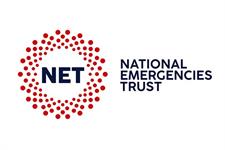The National Emergencies Trust has introduced measures, including amending its allocation criteria, to ensure money raised from its coronavirus appeal will reach BAME communities.
The trust, which has raised more than £60m through its emergency appeal to raise funds for charities affected by the Covid-19 outbreak, said it wanted to ensure that the funds raised would be as accessible as possible to those at risk of further marginalisation.
The NET, which has distributed more than £30m to voluntary sector organisations through the appeal so far, said it had introduced the new measures in response to research showing that BAME communities were at heightened risk from Covid-19.
It said it had ring-fenced an initial £250,000 to enhance outreach by community foundations to BAME-led charities and organisations, providing them with additional support for grant applications, for example.
It said it would adjust its allocation criteria to make increased funds available to those living in areas of economic disadvantage, which it said would provide better support for BAME communities, disabled people and other marginalised communities.
It added that it would target BAME-led charities to encourage them to make funding applications and had appointed Elizabeth Balgobin, head of equality, diversity and inclusion at the Institute of Fundraising, to its allocation committee.
The coronavirus appeal is the first run by the NET, which was launched last year to help provide a coordinated voluntary sector response to major domestic emergencies.
In a column for Third Sector last week, the campaign group CharitySoWhite accused major funders including the NET and the National Lottery Community Fund of having a poor track record on funding BAME organisations.
Jehangir Malik, founder trustee of the Muslim Charities Forum, co-optee of the National Emergencies Trust and chair of its Equity Working Group, said: “As the Covid-19 crisis broke, the trust’s primary focus was to receive and distribute funds as quickly as possible to those in urgent need.
“Partnering with the UK Community Foundations network has enabled us to distribute more than £30m in just six weeks and support more than 4,000 local-level charities working on the community front line.”
But he said new data on the specific impacts of the crisis was emerging and helping to inform how the NET allocated and distributed funds.
“In the immediate term, we’re committed to taking an agile approach to new needs that arise,” he said.
“At the same time, we’re collaborating with the UK Community Foundations network and wider organisations to build strong foundations for fairness for the long term.”
